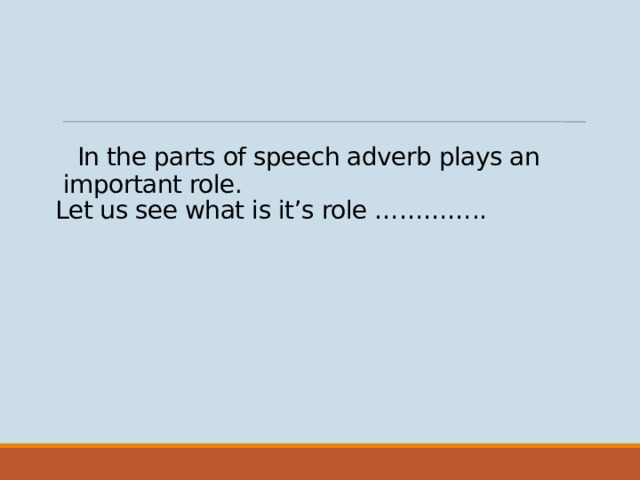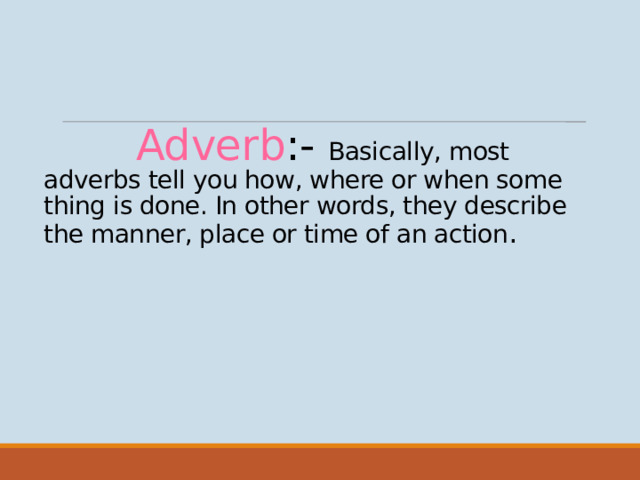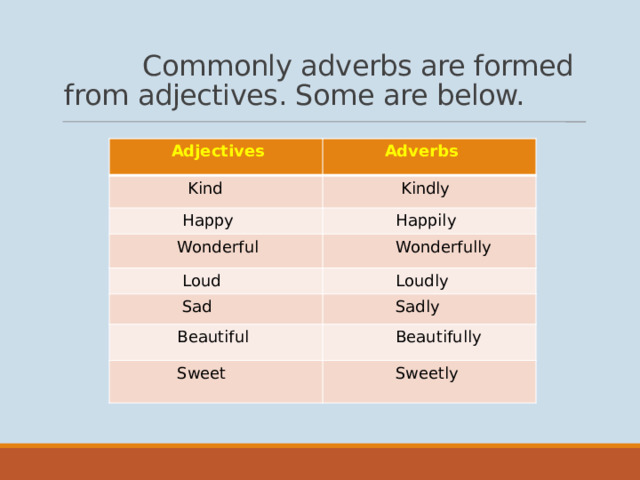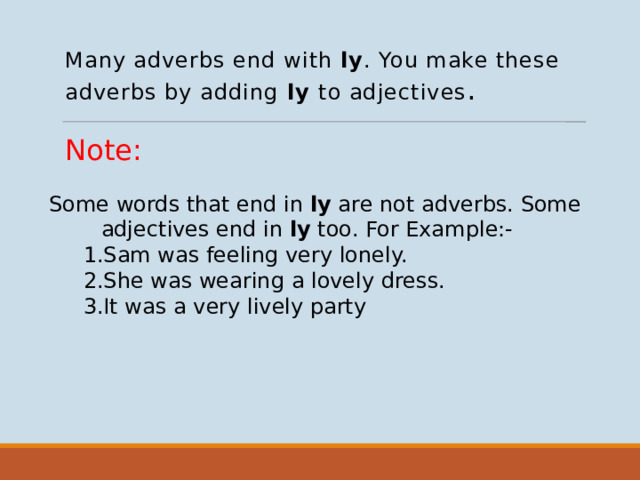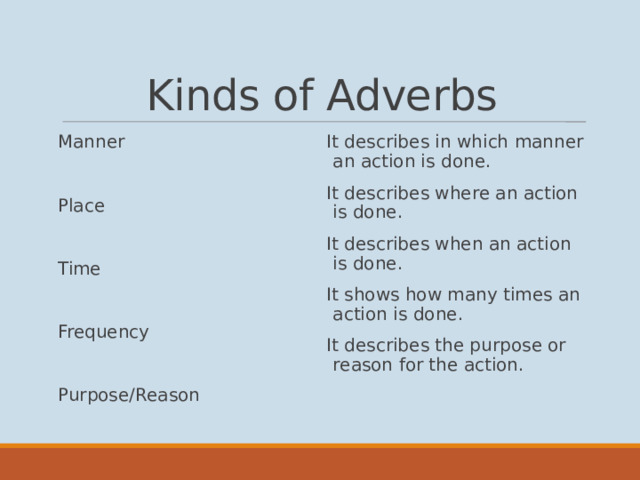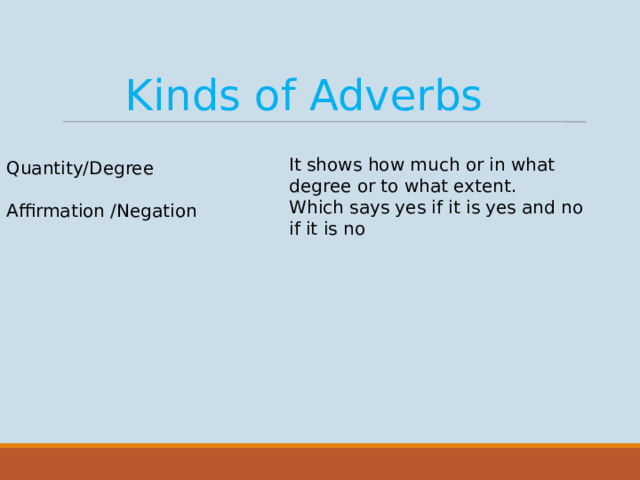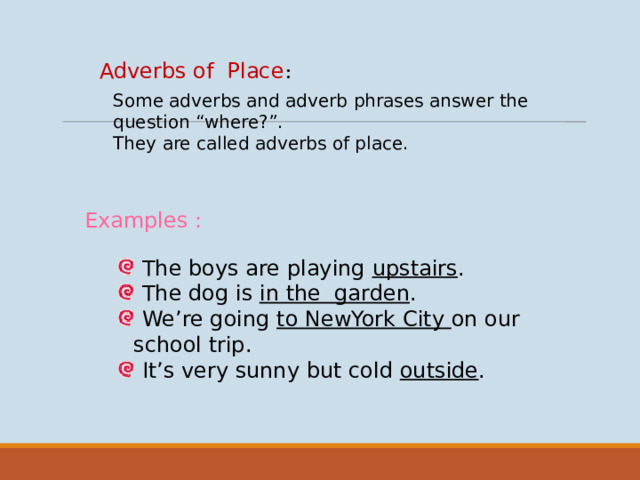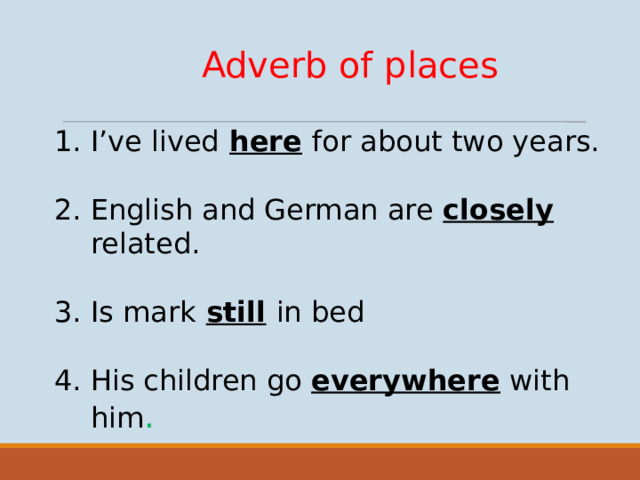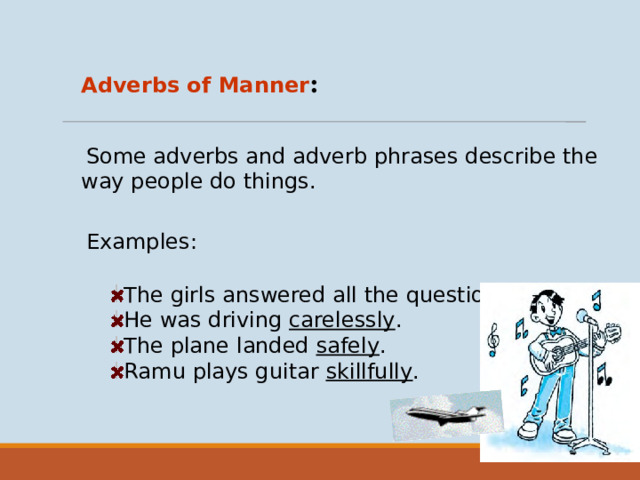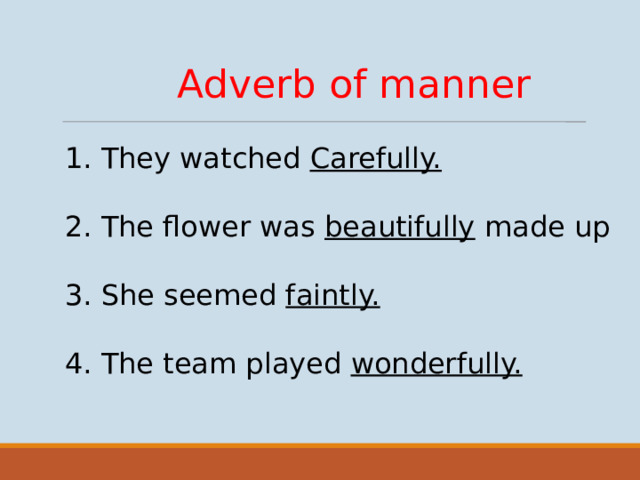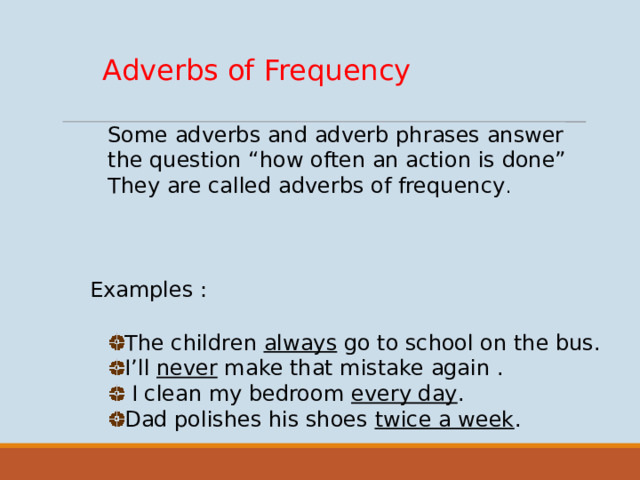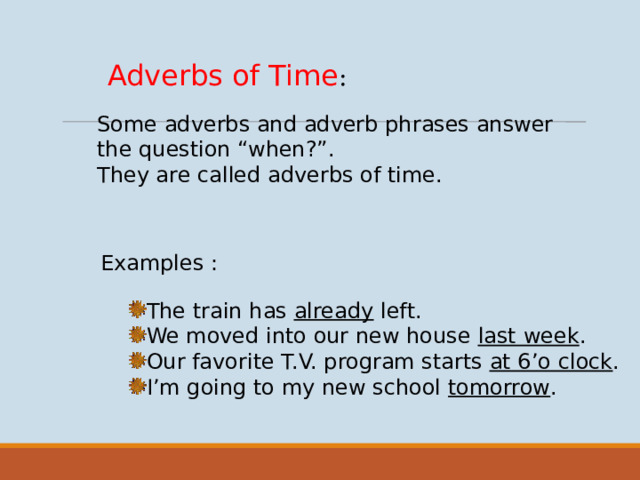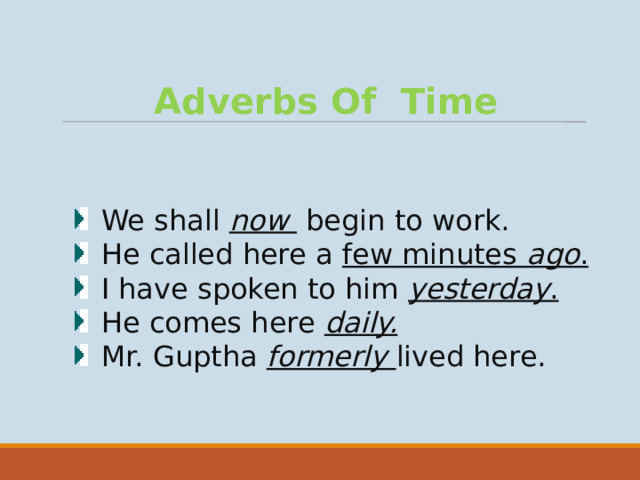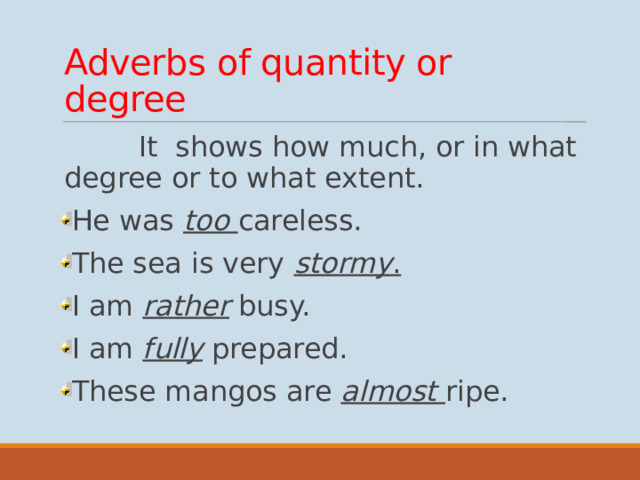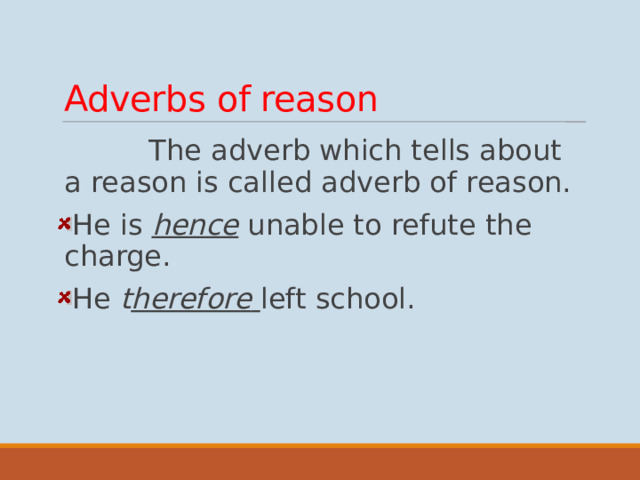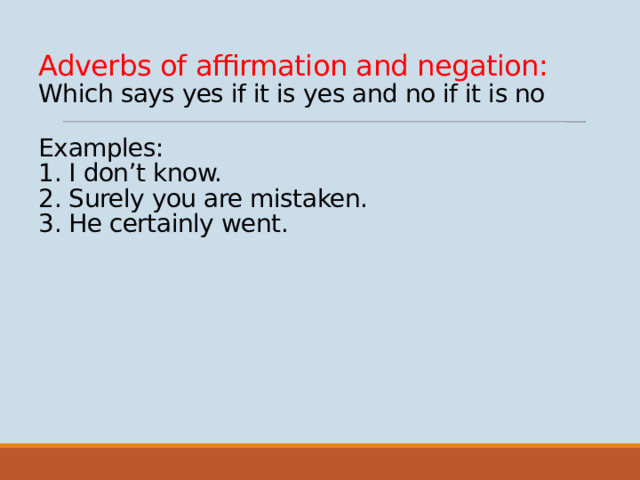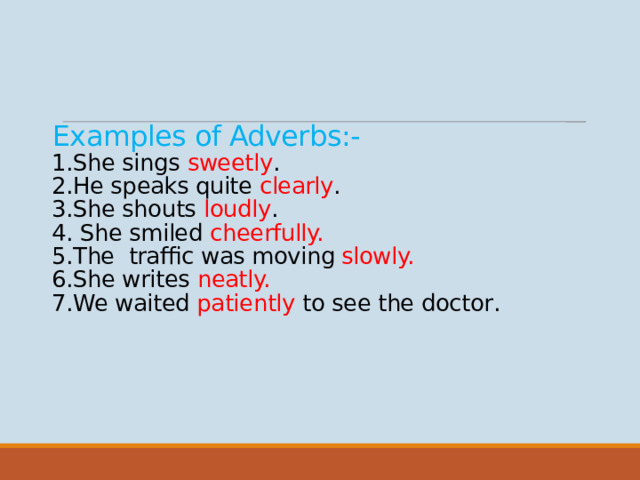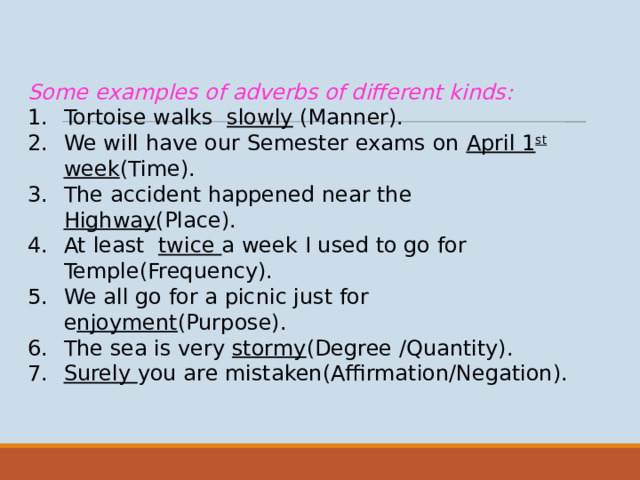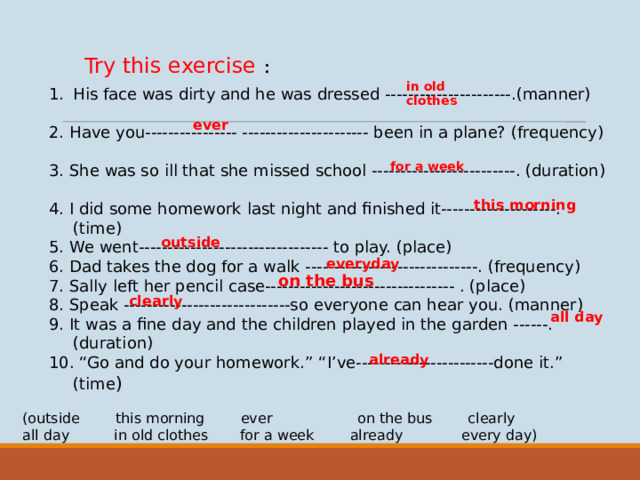Adverb:- Basically, most adverbs tell you how, where or when some thing is done. In other words, they describe the manner, place or time of an action.
Создайте Ваш сайт учителя Видеоуроки Олимпиады Вебинары для учителей
Adverbs (наречия)
Вы уже знаете о суперспособностях современного учителя?
Тратить минимум сил на подготовку и проведение уроков.
Быстро и объективно проверять знания учащихся.
Сделать изучение нового материала максимально понятным.
Избавить себя от подбора заданий и их проверки после уроков.
Наладить дисциплину на своих уроках.
Получить возможность работать творчески.
Просмотр содержимого документа
«Adverbs (наречия)»
Полезное для учителя
Распродажа видеоуроков!
1880 руб.
2690 руб.
1880 руб.
2690 руб.
1860 руб.
2660 руб.
1880 руб.
2690 руб.
ПОЛУЧИТЕ СВИДЕТЕЛЬСТВО МГНОВЕННО
* Свидетельство о публикации выдается БЕСПЛАТНО, СРАЗУ же после добавления Вами Вашей работы на сайт
Удобный поиск материалов для учителей
Проверка свидетельства

